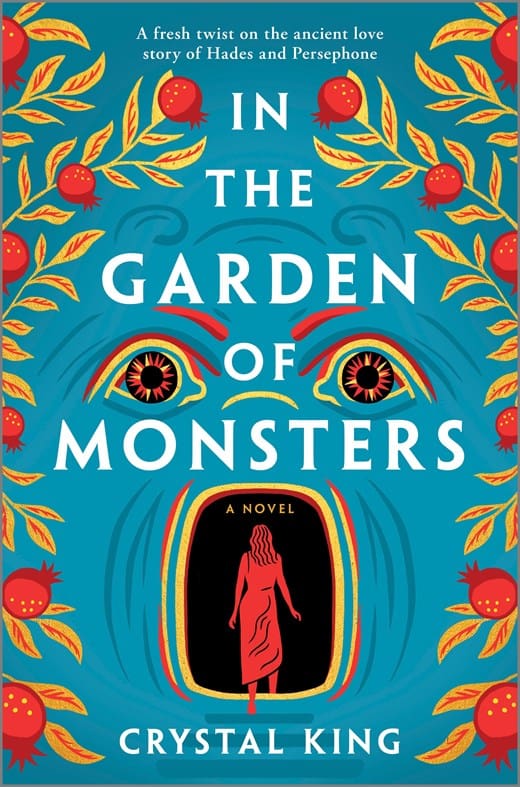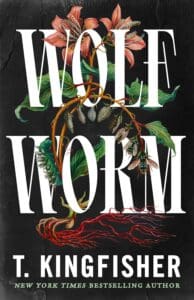
Synopsis
A woman with no past. A man who seems to know her. And a monstrous garden that could be the border between their worlds…Italy, 1948 Julia Lombardi is a mystery even to herself. The beautiful model can’t remember where she’s from, where she’s been or how she came to live in Rome. When she receives an offer to accompany celebrated eccentric artist Salvador Dalí to the Sacro Bosco—Italy’s Garden of Monsters—as his muse, she’s strangely compelled to accept. It could be a chance to unlock the truth about her past… Shrouded in shadow, the garden full of giant statues that sometimes seem alive is far from welcoming. Still, from the moment of their arrival at the palazzo, Julia is inexplicably drawn to their darkly enigmatic host, Ignazio. He’s alluring yet terrifying—and he seems to know her. Posing for Dalí as the goddess Persephone, Julia finds the work to be perplexing, particularly as Dalí descends deeper into his fanaticism. To him, she is Persephone, and he insists she must eat pomegranate seeds to rejoin her king. Between Dalí’s fevered persistence, Ignazio’s uncanny familiarity and the agonizing whispered warnings that echo through the garden, Julia is soon on the verge of unraveling. And she begins to wonder if she’s truly the mythical queen of the Underworld…
Quick Review
In the Garden of Monsters brings together a few of my favorite things: art, history, and mythology. King wraps all that up together in a delightfully fun romance novel.
Full Review
I listened to the audiobook of In the Garden of Monsters on a whim. I didn’t even read the blurb—I just picked a book that would last for about as long as I anticipated working. Luckily, In the Garden of Monsters turned out to be a delight, blending history, Greek and Roman mythology, and romance.
The story is centered on Julia Lombardi, a woman who cannot remember her past, who is hired to model for Salvador Dalí. That premise got me excited, as a former student of art history, but Dalí is mostly a means to an end. An excuse to get Julia to the site he’s painting: Bomarzo, Italy, whose “Park of Monsters” makes up the focal point for all of the book’s strange and supernatural events. (FYI Bomarzo is a real place, as are many of the monstrous statues and sculptures that King describes—which is very cool.)
Throughout the story, which is inspired by the myth of Hades and Persephone, we alternate between scenes in the garden and back at the palazzo. There, a strange conflict brews between Julia, Dalí, and their host Ignazio, who push Julia to eat pomegranate seeds. This is the heart of the book, and is connected to the way people around Julia insist upon referring to her as Persephone, the goddess she is there to model as for Dalí. However, she doesn’t care for the taste, and their insistence suggests a more sinister motive. Julia’s dance balancing what is socially acceptable and expected against what she is personally comfortable with makes this dynamic work well.
That said, the frequent dinner scenes in which people try to feed Julia pomegranates begin to feel a bit repetitive. This never particularly bothered me, but it was noticeable, and I came away wondering if King could have done with shortening the story a bit. Did we need all of these dinner scenes where Julia was trying to avoid pomegranate seeds?
This structure of venturing into the garden, experiencing something strange, then going back for dinner helps to show how things become increasingly uncontrolled. However it also makes a large amount of the book feel the same. And if you already know a bit about Hades and Persephone, that mystery is unlikely to surprise.
In fact, the final chapter contains quite a lot of explanation to sum everything up in a tidy bow. That could be very helpful for some readers, but since I already knew a bit of the myth, it felt mostly unnecessary to me. But I’m the type of person who enjoys endings that aren’t perfectly resolved, so your mileage may vary.
I’ve got some minor gripes, but King’s a fantastic author. I adore the blend of art, history, and mythology. Even though the dinner scenes were a bit too plentiful for my taste, they were also brilliantly written. I came away loving the cast, even those who didn’t get much time, in part due to narrator Carlotta Brentan’s work. Lillian might have even been my favorite—Julia’s friend who helped ground her in reality and only showed up (long term) about halfway through.
Overall, In the Garden of Monsters is a fun read, and I’m glad that I stumbled upon it. I’ll be on the lookout for more from Crystal King.










Leave a Reply